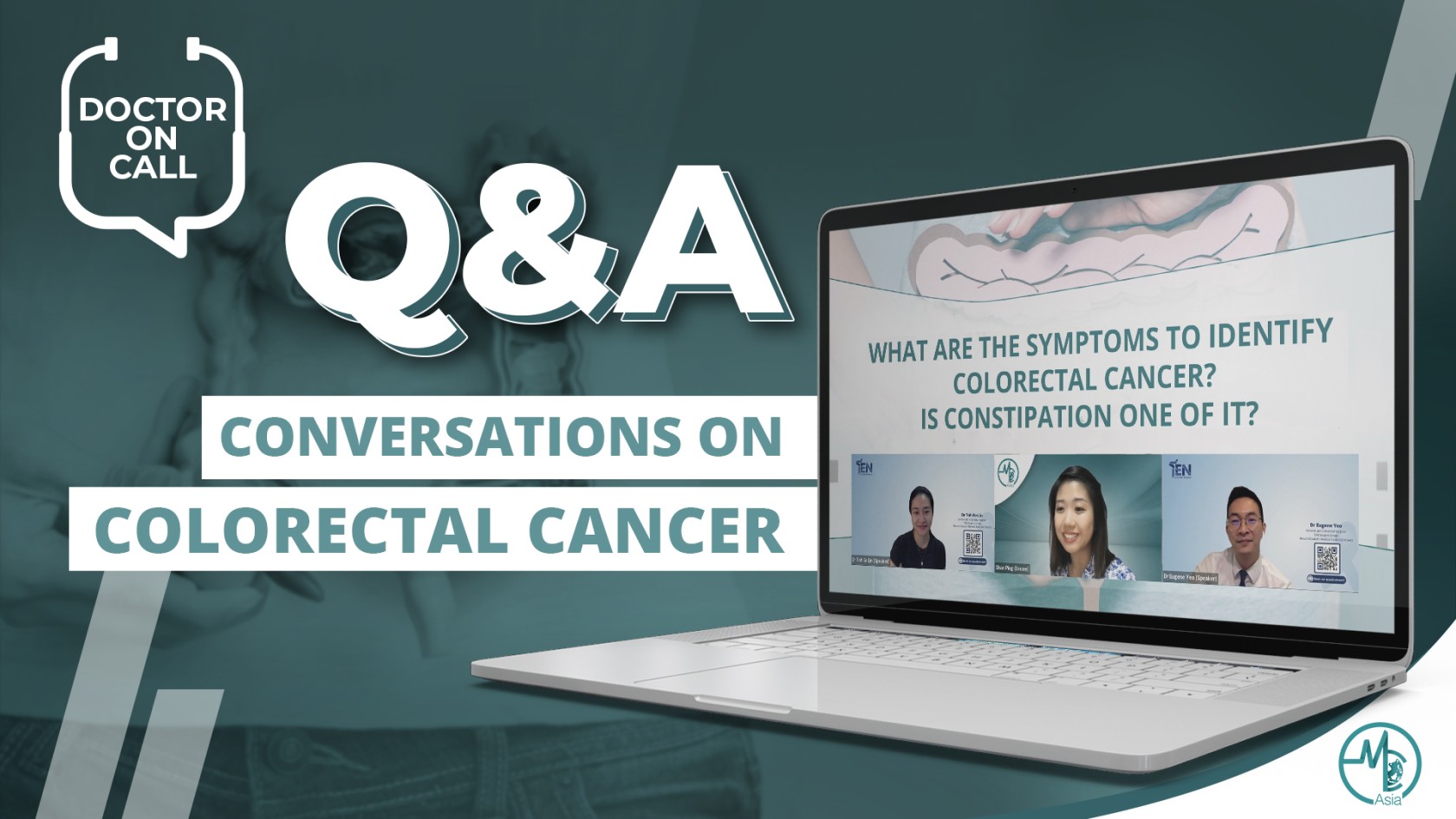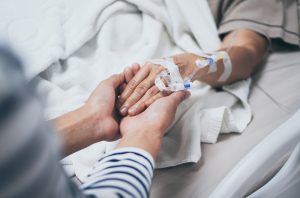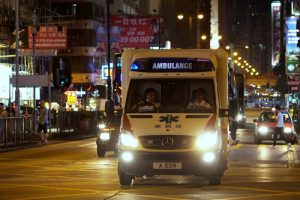Doctor On Call, or DOC for short, is a brand new series brought to you by Medical Channel Asia. This series aims to bring doctors and specialists from various fields to give you an introduction to common health and medical topics that you and the Asian population are interested in. In our 9th DOC, held on 16 March 2022 (Wednesday), from 8pm to 9pm (GMT+8), we have Dr Eugene Yeo and Dr Toh Ee-Lin, General and Colorectal Surgeons at TEN Surgery Group, to talk to us about Colorectal Cancer and Screening
For Part 1 of the forum, we have Dr Eugene Yeo give us a presentation on the epidemiology of colorectal cancer, risk factors, and how we can prevent colorectal cancer. We then have Dr Toh Ee-Lin share on the different screening modalities available.
In Part 2, Dr Eugene Yeo and Dr Toh Ee-Lin go through many questions posted by our enthusiastic audience, both collated from the registration process, and also posted LIVE. Read below to find out more about colorectal cancer.
Question and Answer – Pre-collated segment
Q1: What are the symptoms to identify colorectal cancer? Is constipation one of it?
Dr Toh Ee-Lin: What I think needs to be emphasized is mostly a change in bowel habit, a change that is persistent and recent that we are talking about. If the constipation is recent and a change in your usual bowel habit, or perhaps associated with other symptoms such as difficulty passing gas or abdominal distension, bloating, loss of appetite or vomiting, then it may be something that is worrying. If the constipation is ongoing for many years, we do still recommend some form of colonic screening. In terms of something that is more suggestive of cancer, I still think it is something that is more recent.
Q2: Is it still advisable for an 89 year old diagnosed with colorectal cancer to undergo either surgery or chemotherapy?
Dr Eugene Yeo: 89 year olds can have varying levels of health and their baseline levels can differ widely. It depends on what kind of care the patient wants if he/she is able to make the decision and what the aims of treatment are.
Question and Answer – LIVE
Q1: What is the ideal age to start doing colonoscopy/endoscopy monitoring?
Dr Toh Ee-Lin: What most people understand as an endoscopy is a gastroscopy where we screen the stomach. There is actually no guideline for the screening of stomach cancer. As it is not very common, gastroscopy is only recommended when you have symptoms such as bloating and gastric pain. For a colonoscopy, if you have no symptoms, the recommended age according to the Singapore guidelines is 50. This is the age that cancer is picked up, but to detect polyps, it is better to start earlier. Patients with family history may decide to start younger, the general guideline is 10 years earlier than when your first-degree relative was first diagnosed with colon cancer.
Q2: An elderly patient has a tumour on her colon. Is it true that MRI scan is needed to ensure cancer has not spread to other organs, especially the lungs?
Dr Eugene Yeo: Generally, after the patient is diagnosed with a cancer in the colon, we need to do what we call staging. Staging is not only an assessment of the colon and the tumour, but also whether there are organs involved. In general, we do not do MRI scans but instead we do a CT scan. A CT scan looks at the chest which includes the lungs (the most common site of spread), abdomen and the pelvis.
Q3: I just had my colonoscopy done earlier this year and the surgeon removed 2 polyps. The doctor sent it for biopsy and found it to be benign. Is the incidence of polyp recurrence high?
Dr Toh Ee-Lin: If you are already found to have polyps, the understanding is that the recurrence risk is going to be much higher. The number of polyps and the size of the polyps and whether the polyp was removed completely the first time around can determine if the polyp will return.
Q4: Any long-term medicine I need to stop taking before my colonoscopy? I am a 53 year old and I am on Amlodipine and Lipitor.
Dr Eugene Yeo: Majority of the time, most medications can be continued. Some blood-thinning medications may render the colonoscopy not so safe because if we want to remove the polyps during the screening, there is a higher risk of bleeding after the scope. Patients on chemotherapy may be immunocompromised and may not be able to tolerate the side effects of the colonoscopy. In general, these two are the medications that we look out for. Most of the time, we do not need to stop amlodipine and Lipitor.
MedicalChannelAsia: Most importantly, patients should still seek their doctor’s advice for personalized recommendations on the medications that they are supposed to stop or withhold, and for how long.
Q5: Is it okay to do a scope at 36 years old?
Dr Toh Ee-Lin: This depends on whether you have any family history or any symptoms. If for example, you have been bleeding when you open your bowels for the past few months, we recommend a colonoscopy over the stool test. Some patients do a colonoscopy for reassurance and peace of mind, but as long as they understand that each procedure carries its own risk, it is still feasible.
Q6: So it means that there is no “scope” for small intestines. How do people screen small intestines? CT/MRI?
Dr Toh Ee-Lin: The commonest areas within the gastrointestinal tract where problems can happen are the colon and the stomach. It is quite rare for the small intestines to have any issues. There is scope specifically for the small intestines but this is not commonly done. It is only done if the patient presents with symptoms like bleeding and we need to find out where the bleeding is coming from. If we have already checked the colon and the stomach and the stomach and there are no issues, that’s when we may perhaps decide to investigate the small intestines. Another example of when we may investigate the small intestines is when patients have inflammatory bowel disease that may potentially affect the small intestines. An MRI enterography may be done to look at whether there is any infection or tumours within the small intestine.
Dr Eugene Yeo: There are certain CT/MRI designed to look at the small intestines but they are not commonly done as Ee-Lin has said, the risk of problems or issues developing from the small intestine is actually extremely, extremely rare. We can scope them or do a CT/MRI but it is not common.
Question and Answer – Unanswered during the webinar
For many questions that were unfortunately left unanswered during the webinar, not to worry as Dr Yeo and Dr Toh had taken the time to read through them and answer them thoroughly!
Q7: Why do patients need to use a stoma bag after surgery? How long do they need to use the stoma bag for?
A stoma bag may be required in generally 2 instances: 1) if the tumour is involving the anus muscles and the anus needs to be resected in order to get clearance of the tumour, then a permanent stoma bag will be required; 2) if the tumour is close to, but not involving the anus muscles, the resection of the tumour will result in a bowel joint that is close to the anus. This often puts the joint at a much higher risk of infection and breakdown. As such, a stoma bag is required temporarily to divert the stools away from the bowel joint, to allow it time to heal. Investigations are done to ensure the bowel joint has healed about 2 to 3 months later, before the stoma is reversed and the patient is able to open bowels via the anus again.
Q8: If one has frequent hemorrhoids, does that person have a higher risk of colorectal cancer?
Haemorrhoids have no direct relation to Colon or Rectal cancer. Haemorrhoids are a benign condition that is caused by swelling of piles which may cause bleeding, discomfort, or a lump at the anus.
However it is important to understand that the symptoms of Colorectal Cancer can mimic symptoms of haemorrhoids – so if you are concerned it is important to speak to your doctor to get yourself evaluated further!
Q9: What’s the recommended interval between each colonoscopy for surveillance purposes?
The answer will depend on the result of the prior colonoscopy that was done.
If the colonoscopy was normal, then the recommendation will be to do the scope between 5 to 10 years later. Most screening guidelines recommend an interval scope after 10 years – provided the bowel prep is good during the first colonoscopy and there is no family history of colorectal cancer. Bear in mind that 10 years is sufficient time for a small polyp to increase in size and turn malignant. Hence, some will advocate for earlier scopes, with the intention of detecting polyps before they turn malignant. Therefore, we will recommend somewhere in the region of 5 to 10 years if you have had a normal colonoscopy before and have no family history of colorectal cancer.
If polyps were detected on your colonoscope, then the interval before the next scope is done depends on a few factors: 1) the number of polyps, 2) the size of the polyps, 3) the type of polyps detected and removed. You should discuss your report with your doctor to determine the ideal time interval before your next colonoscope.
What’s next in store?
- Click here to see Dr Eugene Yeo and Dr Toh Ee-Lin’s presentation in Part 1 if you have missed it!
- If you have missed our previous DOC webinars, visit our Medical Channel Asia’s YouTube page, or you can also read the articles:
- Doctor On Call (DOC): Dr Sean Leo – Common Sports Injuries Part 1, Part 2
- Doctor On Call (DOC): Dr Lee Fang Jann – Men’s Health Part 1, Part 2
- Doctor On Call (DOC): Dr Felix Li – Medical Aesthetics Part 1, Part 2
- Doctor On Call (DOC): Dr Michael MacDonald – The Silent Killer Part 1, Part 2
- Doctor On Call (DOC): Dr Jade Kua – DARE to Save a Heart Part 1, Part 2
- Doctor On Call (DOC): Dr Radhika Lakshmanan – Facts and Myths of Breast Cancer Part 1, Part 2
- Doctor On Call (DOC): Dr Julian Tan – Ischemic Heart Disease Part 1, Part 2
- Doctor On Call (DOC): Dr Leong Hoe Nam – Long COVID Part 1, Part 2













